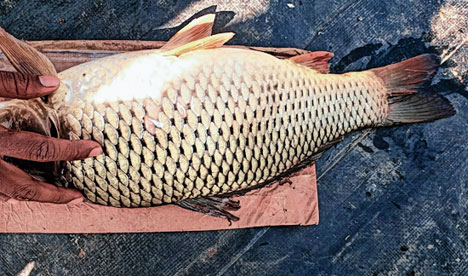
Derives its name from Amur river in Hungary. It grows much faster than the traditional carps

It is rich in Omega 3 Fatty Acids and has almost zero cholesterol

It is being hailed as a great substitute for bekti
Salt Lake: Imported varieties of fast-growing fish are being farmed in state-owned wetlands and ponds from Calcutta to Digha so that Bengalis reared on a diet of rohu and catla don't carp about dwindling local supply.
Amur carp, one of the new farm favourites, is a Hungarian strain of the common carp that grows much faster than the catla and is said to taste as good sitting on a bed of yellow-red gravy.
The cobia fish is already a replacement for bekti stuffing in several countries while the silver pompano is treated as a substitute for the pompret. The pompano is a marine fish that can survive in brackish water and grows much faster.
For fish farmers, these varieties provide a clear economic advantage over the old school. "Two cycles of rohu or catla take one-and-a-half years. In comparison, two cycles of amur take a year," said Soumyajit Das, managing director of the State Fisheries Development Corporation.
The corporation owns 900 hectares of water bodies reserved for fish farming in the East Calcutta Wetlands, Salt Lake, Rajarhat, Henry's Island, Frazerganj, Digha and some other parts of the state. The annual output of these fisheries is more than 15,000 metric tonnes of fish.
B.K. Mondal, the general manager of the corporation, said the search for new varieties was prompted by fish production in Bengal failing to keep up with population growth. Demand is far higher than local supply and the state is becoming increasingly dependent on fish reared in other states.
Agro-climatic changes triggered by pollution and global warming are the other triggers. Moreover, it is a challenge to grow rohu, catla and mrigal in shallow water bodies. But amur and some of the other imported varieties are more adaptive.
The corporation procured 2,000 fry from a research centre in Bangalore a fortnight ago. They are being reared in a sewage-fed water body at Goltala, in North 24-Parganas. "If the fish survive there, we can farm them anywhere," Das said.










